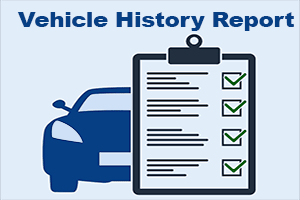Florida Vehicle History Report
Buying a car in Florida? There's one tool you shouldn't overlook: the Florida vehicle history report. This report is a comprehensive background check on any vehicle registered in the Sunshine State. But what exactly is a Florida vehicle history report? It's a document that reveals a vehicle's past, from ownership changes to accident history. It's like a biography for your car, providing salient insights that can influence your buying decision.
Why is this report so important? It helps potential buyers avoid cars with hidden problems, and potential scams. It can reveal if a car has been in any major accidents, branded as a lemon, or even reported stolen. In the following guide, we'll root out the important details of a Florida vehicle history report. We'll discuss what information it contains and how you can run one yourself. Whether you're a buyer, a seller, or just curious, we'll equip you with the knowledge you need.
Understanding the Florida Vehicle History Report
A Florida vehicle history report is a detailed snapshot of a vehicle's past. It includes detailed information about issues or changes in the overall health of a vehicle that may influence a purchase decision. This report is highly recommended for anyone considering buying a car within Florida's borders. The report comprises various sections, such as accident history, title status, and past ownership. It serves as both a protective measure and an informative tool for anyone looking to buy a used car.
Understanding the report can save you from future financial headaches and safety concerns. Vehicles with undisclosed issues can be money pits. A comprehensive vehicle history report can help mitigate such risks by offering transparency. Florida's climate and unique conditions can affect vehicle longevity. With a state that is prone to hurricanes and flooding, there have been a copious amount of vehicle's damaged from these weather events.
Key Information Contained in a Florida Vehicle History Report
The history of each vehicle can vary dramatically, and without running this report, consumers may not know the entire truth about it. This document is more than a formality; it’s a window into the car's journey. Each section tells a story, offering specific insights that can let a buyer evaluate the risks and value of what that car might be worth. The report consists of several key areas that require careful consideration. From vehicle identification to accident history, odometer verification, ownership information, and title brands. Each piece of information is important to review, and can be objectively used to determine the value of a used car purchase.
Key components of the report include:
1). Vehicle Identification: Details like VIN and make/model.
2). Title Status: Information on liens and legal encumbrances.
3). Accident and Damage History: Records of crashes or significant repairs.
4). Ownership Records: A timeline of former owners and possible uses.
5). Service Records: Regular maintenance and major repairs, if available.
6). Odometer Readings: Used to detect potential fraud or inaccuracies.
7). Title Brands: Has the vehicle been salvaged, a lemon, or been in a flood.
8). Fraud Check: Has the vehicle been reported stolen, or has the VIN been cloned.
Vehicle Identification and Title Status
The vehicle identification section provides basic information about the specifications and options from the manufacturer. It also includes the vehicle identification number (VIN), which is like a social security number for a vehicle, they are all unique. This number verifies that you're examining the correct vehicle report. The title status is another important piece of the puzzle. The title will reveal any liens, encumbrances, brands, or legal holds on the car. A clean title status is an indicator of a straightforward, problem-free vehicle.
Accident and Damage History
Understanding a car's accident history can also prevent future problems, or be a deal breaker when examining the history of a used car. This section reveals any crashes or damage the vehicle has endured. Such incidents could impact the car's long-term performance. This can also affect the title status and brand it as being salvage or rebuilt. Some history reports even detail repair work following damage. Knowing about significant repairs helps you anticipate future maintenance issues. It's an important piece of the puzzle when evaluating a vehicle's current condition.
Ownership and Service Records
Ownership records offer a timeline of the vehicle's history, and details how many individuals or entities have owned the car. Frequent ownership changes may suggest underlying issues. Service records can enhance your understanding of the vehicle's maintenance history. These records shed light on how well a car was cared for. Regular maintenance records can suggest a well-kept vehicle, increasing buyer confidence. However, service records are not always available with the report. These are only available when reported. If the used vehicle does not show service records, it's always a good idea to ask the seller for these to review before your purchase.
How to Obtain a Florida Vehicle History Report
Obtaining a Florida vehicle history report is straightforward. This report provides peace of mind to buyers and sellers. While dealerships will usually supply these for used car sales, private owner do not. If this is the case, you will need to get the 17 digit VIN for the vehicle to run the history report online. Once you have the VIN, you can choose from various sources for the report. These range from state agencies to private companies. Each source offers different levels of detail and pricing options. The choice of provider can impact the depth of information obtained. Some offer basic reports free of charge. Others provide comprehensive, paid versions with extensive data.
How Much Does a Vehicle History Report Cost?
While there are some free vehicle history report services out there, they do not provide a lot of detail about a vehicle such as accident reporting or title checks. The premium reports will cost anywhere from $20-$30 per vehicle. These premium services are well worth it, especially if they uncover any hidden issues that can cause problems down the road.
Vehicle History Report Scams
In recent years there have been a multitude of various online scams showing used cars with fake vehicle histories. It's important to run these reports yourself through a verified resource. If you are purchasing a used car from a dealership and they provide this report, you are probably safe. But, if a private seller provides you with one, you may want to spend the extra time to run one yourself to verify it's accuracy.
Are All Vehicle History Reports The Same?
Another common myth is that all reports are the same. Different providers might include varying details or use different data sources. It's important to compare reports for a comprehensive view. This will assist buyers and sellers in having an accurate representation.
Does a Clean Vehicle History Report Mean There Are No Problems With The Vehicle?
Some individuals believe that a clean vehicle history report guarantees a trouble-free car. While it provides vital information, it doesn't replace a physical inspection. Mechanical evaluations and test drives remain crucial to assess a vehicle’s condition fully.
Is a Vehicle History Report Necessary When Buying a Used Car?
Many ask if it's really worth the cost. Given the potential financial and safety risks, investing in a report is advisable. This small cost can save from costly repairs or legal issues later on.


